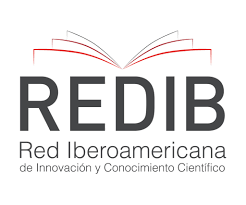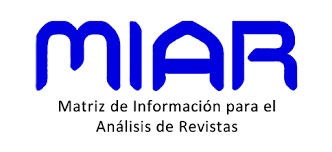Edith Stein (1891-1942): politics and education as tools of social change in favor of women in the early twentieth century
DOI:
https://doi.org/10.51743/cpe.228Keywords:
women, politicization, education, social conscience, literatureAbstract
Saint John Paul II (1999), in the Apostolic Letter in the form of "Motu Proppio" Spes Aedificandi for the proclamation of Edith Stein co-patron of Europe, together with Saint Bridget of Sweden and Saint Catherine of Siena, highlighted our protagonist as an example of defence of both social promotion and mission of women in society.
She is a multifaceted woman who has a recognized international prestige within the philosophical and theological field. Almost a century later, her intellectual thinking still surprises and attracts us. Observing external needs, apprehending them and processing them internally to decide a well-supported response can be the summary of the unifying thread that characterized Edith Stein’s procedure (1891-1942). To get closer to her work, we have multiple researches about her intellectual legacy. The challenge we set ourselves in this reflection is to reveal her most unknown and pragmatic side oriented towards social change. In order to do this, we will make a foray into the political and pedagogical activity developed by our protagonist in the early twentieth century.
Downloads
Global Statistics ℹ️
|
750
Views
|
563
Downloads
|
|
1313
Total
|
|
References
Berg, C. (Ed.). (1991). Handbuch der deutschen Bildungsgeschichte. Band IV. 1870-1918. Von der Reichsgründung bis zum Ende des Ersten Weltkriegs. Verlag C. H. Beck.
Birkenbeil, E. J. (1990). Dr. Edith Stein: Assistentin, Lehrerin, Dozentin. En L. J. Elders SVD (Ed.), Edith Stein. Leben, Philosophie y Vollendung. Abhandlungen des internationalen Edith-Stein-Symposiums Rolduc (pp. 95-109). Johan Wilheim Naumann.
García Garrido, J. L. (2005). Sistemas educativos de hoy (4.ªed.). Ediciones académicas.
García Rojo, E. (1998). Edith Stein. Existencia y pensamiento. Editorial de Espiritualidad.
Herrmann OP, M. A. (2012). Edith Stein. Ihre Jahre in Speyer. Media Maria Verlag.
Herrmann OP, M. A. (s.f.). Aufsatzstunde-Lebenskunde. Gedanken zu Aufsatzthemen von Edith Stein (manuscrito sin publicar). Archivo del Convento de Santa Magdalena de Espira, Alemania.
Juan Pablo II. (1999). Carta Apostólica en forma de «Motu Proppio» Spes Aedificandi para la proclamación de Santa Brígida de Suecia, Santa Catalina de Siena y Santa Teresa Benedicta de la Cruz copatronas de Europa. http://w2.vatican.va/content/john-paul-ii/es/motu_proprio/documents/hf_jp-ii_motu-proprio_01101999_co-patronesses-europe.pdf
Muñoz Arranz, M. M. (2021). La pedagogía con sentido en el pensamiento de Edith Stein: sistematización de su legado pedagógico (1926-1933) y su relación con la práctica docente como formadora de maestras en Espira (1923-1931) (Tesis doctoral). Universidad Complutense de Madrid.
Orden Ministerial de 2 de agosto de 1912. (8 de agosto de 1912). Die Bildung der Lehrer und Lehrerinnen (La formación de maestros y maestras). Ministerialblatt für Kirchen und Schulgelegenheiten im Königreich Bayern, 25, 397-466.
Ortiz de Montellano L.C., O. (2015). Edith Stein, el ethos femenino y el papel de la mujer en la enseñanza. Ecclesia. Revista de cultura católica, XXIX(3-4), 229-257.
Sancho Fermín, F. J. (2008). El ambiente espiritual y humano de Edith Stein. En U. Ferrer (Ed.), Para comprender a Edith Stein (pp. 15-94). Ediciones Palabra.
Speer, A. y Regh, S. (Ed.). (2016). «Alles Wesentliche lässt sich nicht schreiben». Leben und Denken Edith Steins im Spiegel ihres Gesamtwerkes. Verlag Herder GmbH.
Stein, E. (2002). Obras completas I. Escritos autobiográficos y cartas. Editorial Monte Carmelo.
Stein, E. (2003). Obras completas IV. Escritos antropológicos y pedagógicos. Editorial Monte Carmelo.
Stein, E. (2004). Bildung und Entfaltung der Individualität (2.ªed., vol. 16). Verlag Herder.
Stein, E. (2010). Aus dem Leben einer jüdischen Familie und weitere autobiographische Beiträge (3.ªed., vol. 1). Verlag Herder GmbH.
Stein, E. (2015). Die Frau. Fragestellungen und Reflexionen (5.ªed., vol. 13). Verlag Herder GmbH.
Stein, E. (2020). Neu aufgefundene Texte und Übersetzungen VII. Texte zu Philosophie, Politik, Pädagogik; Übersetzung: Bonaventura, Karmel-Geschichte, „Judenfrage“. Neu aufgefundene Briefe und Dokumente (vol. 28). Verlag Herder GmbH.
Vilanou Torrano, C. (2002). La pedagogía teológica en Edith Stein (1891-1942). Revista española de pedagogía, 60(223), 481-500. https://www.jstor.org/stable/23764653
Vilanou Torrano, C. (2011). La Pedagogía alemana y su recepción en España: la idea de formación y las ciencias del espíritu. En J. M. Hernández Díaz (Coord.), La pedagogía alemana en España e Iberoamérica (1810-2010) (pp. 135-192). Castilla Ediciones.
Downloads
Published
How to Cite
Issue
Section
License
The author reserves the rights (copyright) of the published works, and the journal encourages and allows their reuse, from the preprint. The works are published in the electronic edition of the journal under a license "Creative Commons Attribution / Attribution-NonCommercial 4.0 International Public License - CC BY-NC 4.0", and can be copied, used, disseminated, transmitted and publicly exhibited.
The author / s partially transfer the property rights (copyright) of this work for the printed and online editions, provided that:
- The authorship and original source of its publication (magazine, publisher and URL of the work) is cited.
- Are not used for commercial purposes.
- The existence and specifications of this user license are mentioned.
It also declares to have respected the ethical principles of research and to be free from any conflict of interest.
"C.P.E." encourages the authors and the scientific community to the maximum promotion and dissemination of the works in their final version through:
1) Your list of contacts (emails) and social networks (Facebook, Twitter, LinkedIn ...).
2) Institutional repository of your University and public repositories (Mendeley, Cosis ...).
3) Scientific social networks (ResearchGate, Academia.edu, Kudos ...).
4) Personal or institutional website, blog, etc.
5) Google Scholar, ORCID, ResearchID, ScopusID, Dimensions, PlumX ...
6) Printed copies purchased directly and sent to specialists for reading and subsequent citation if appropriate.




















1.png)
1.png)

1.png)





.png)
.png)

.png)
1.png)
1.png)
